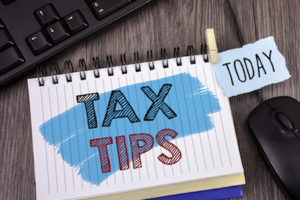After many years working on California bankruptcy cases, we can offer our clients advice about the process leading up to bankruptcy and beyond. Today we have compiled a few tips that can help ensure you are filing your taxes correctly after you have filed for bankruptcy.
File Your Tax Returns
All too often debtors end up not filing taxes because they knew they would not be able to pay the taxes they would owe. While we understand this mindset, it actually works against you. Even if you cannot send a check to pay them, you should file your taxes. Why? Because filing your return begins several clocks that can work to your advantage.
For example, you have three years from the date you file taxes until you discharge them. The tax collection statute runs for ten years. The sooner you file, the sooner these take effect. The worst possible situation is that the IRS will file a return for you – don’t let that happen, file your taxes.
Do Not Pay Tax on Discharged Debt
If you went through the bankruptcy process then it is likely you have debts that were discharged. This has no tax consequences. The IRS code is very specific in its exclusion of taxable income from debts forgiven in bankruptcy. Note that you may still get a 1099 from the creditor who canceled the debt. That is their duty, but you must assert that your debt falls under the bankruptcy exception.
Claim Deductions for any Payments Made for Chapter 13
If you were making Chapter 13 payments last year in order to catch up on owed payments for real property loans, then you can claim those payments as deductions. Do not assume that because the trustee is the one who is physically writing the check that you are not due the deduction for mortgage interest. You will need the trustee’s disbursement records for your particular case to find out what you can deduct.
If You End Up Owing Tax Then a Change Needs to Be Made
If you file your tax return and owe tax, then you need to make changes to your withholding. The idea is that your employer should be withholding an amount of money that keeps you from owing at the end of the year. If you see a huge refund, then you may want to make changes too, to give you access to that money throughout the year.
Call Us Today for Your Free Bankruptcy Consultation
The above tax tips apply to those who have already filed for bankruptcy. If you have not yet filed but are considering it, then we urge you to contact The Law Offices of Paul Y. Lee at 951-755-1000 today to request a free bankruptcy consultation. We will go over your finances and give you an honest assessment of your best options.


